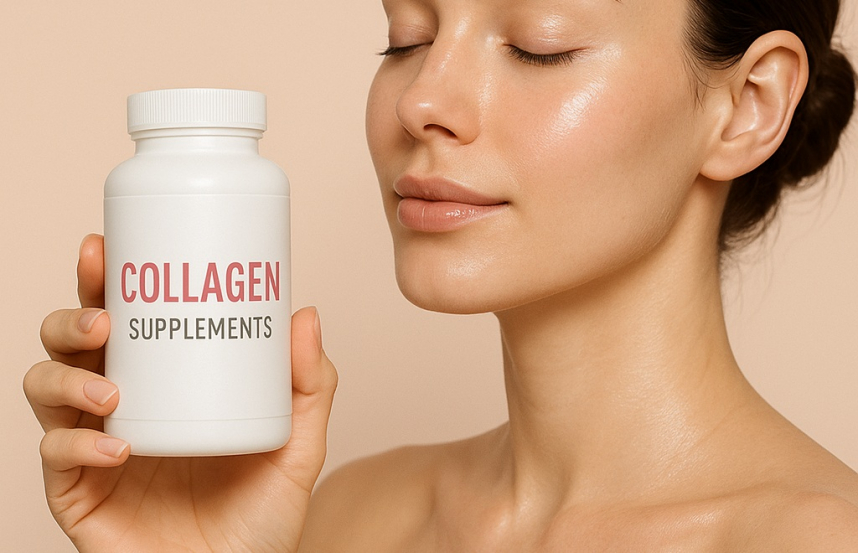
Many people take collagen powders and pills in the hope of looking younger for longer, but there are better ways to improve your chances.
Collagen is one of the body’s building blocks. Made up of amino acids absorbed from the protein we eat, there are more than 20 subtypes found everywhere, from our bones and muscles to organs. Types I, II, and III are the most common in skin, cartilage, and connective tissue, helping with strength and elasticity.
In recent years, collagen has become known as the protein that keeps the skin on our face young-looking, with collagen powders and pills promising to slow signs of ageing – but is there any truth in those claims?
Dr Afshin Mosahebi, a professor in plastic surgery at University College London, says the science is “dubious”, with a lack of large-scale, peer-reviewed studies.
“There’s no direct evidence that collagen, taken on its own, can do anything more than eating enough protein,” says Mosahebi.
He says it’s true that, as we age, changes in collagen level make the skin on our face start to look “crinkly” and less firm, but that it’s wrong to assume that simply supplementing collagen is the solution. “When you eat something, it doesn’t go directly to your skin. Of course, parts of it are eventually absorbed and used in skin repair, but it’s not going to go straight from your mouth to your face and wrinkles.”
He adds that using skincare containing collagen won’t make a long-term difference to ageing either, as “it doesn’t penetrate the skin itself”.
Instead, he says that the way we age is down to genetics (like having fair skin that’s sensitive to the sun) and our lifestyles. His tips for slowing that process down include making sure to eat a balanced diet that includes proteins, keeping away from the sun, avoiding smoking, staying hydrated, and keeping your skin moisturised with products like hyaluronic acid.